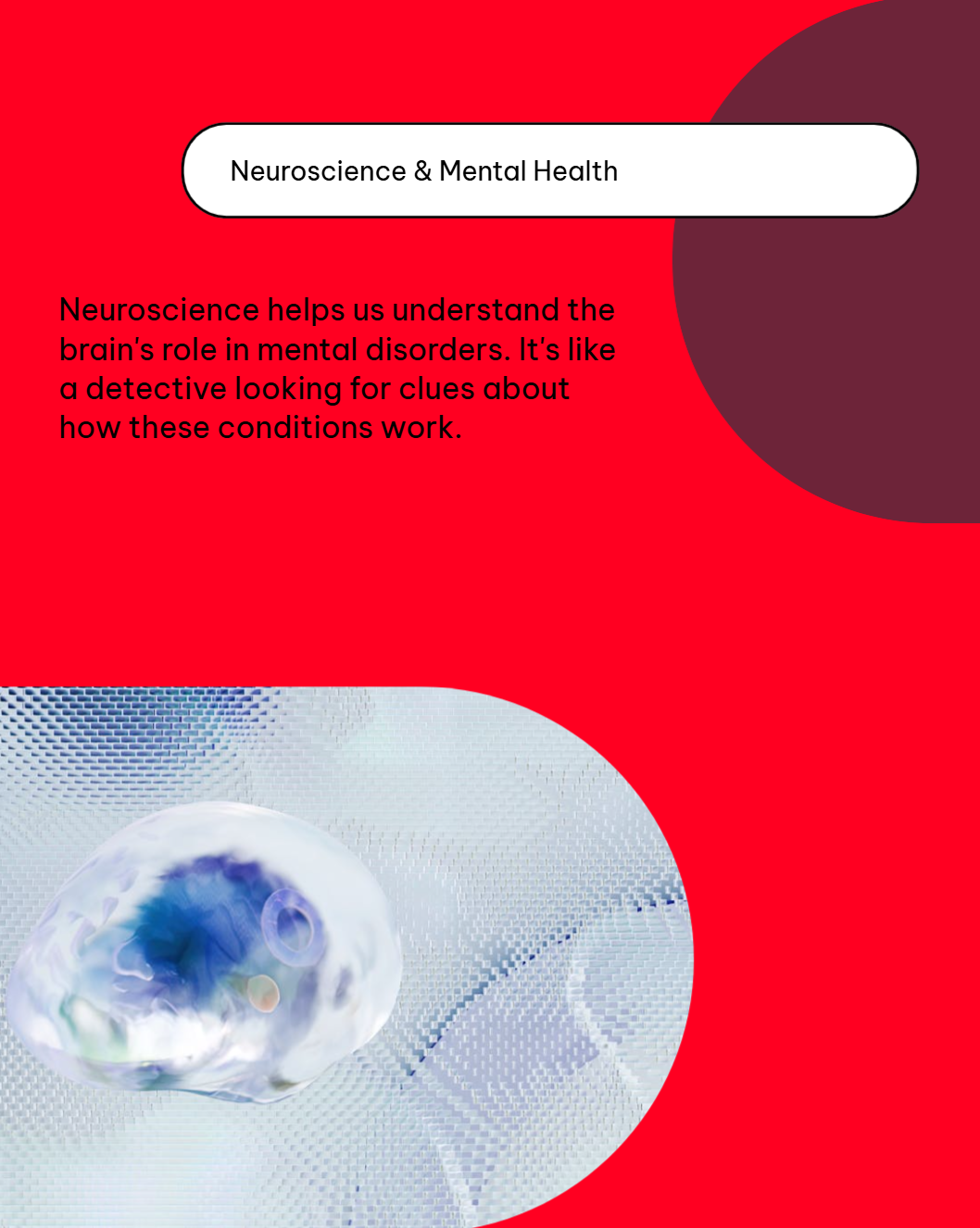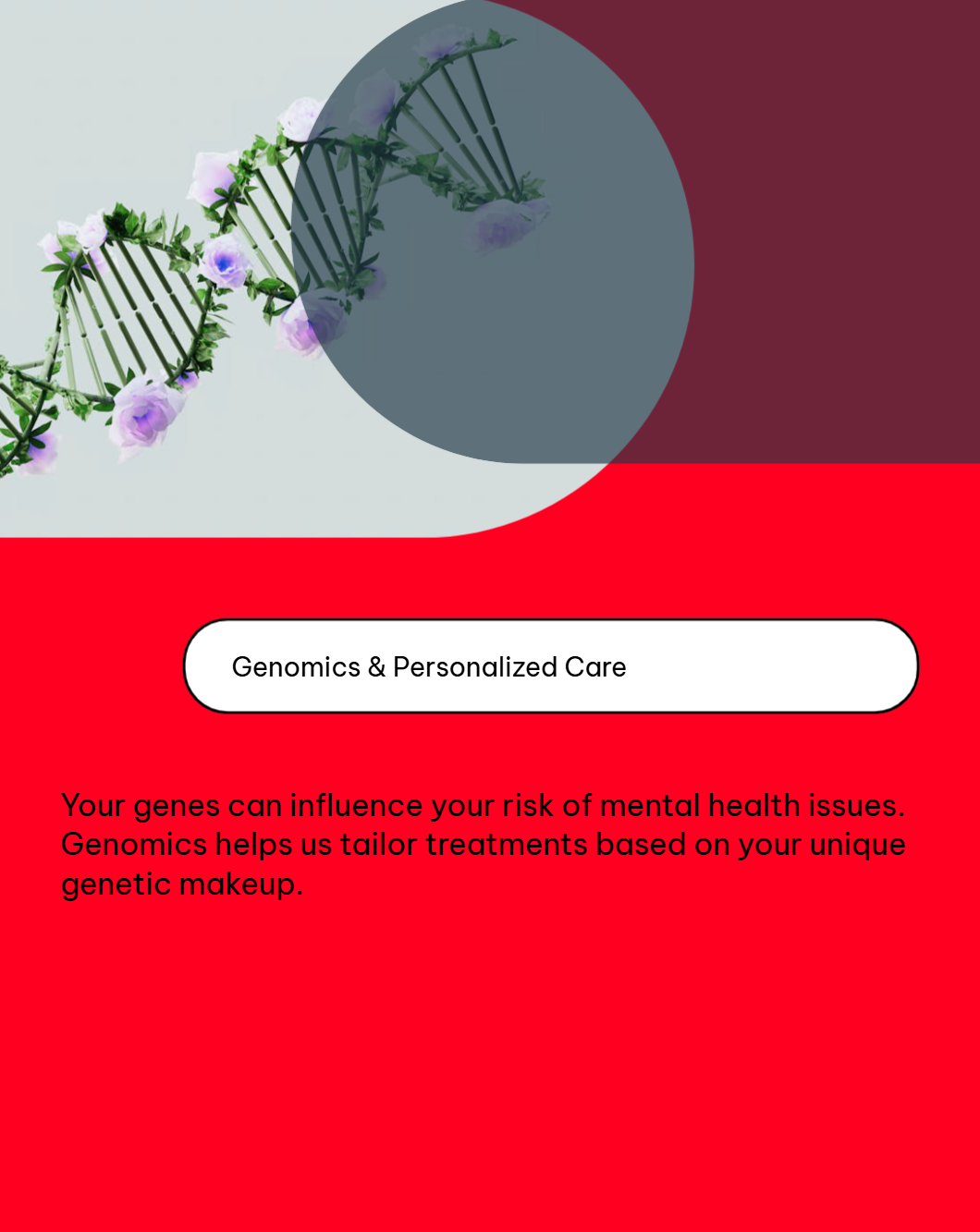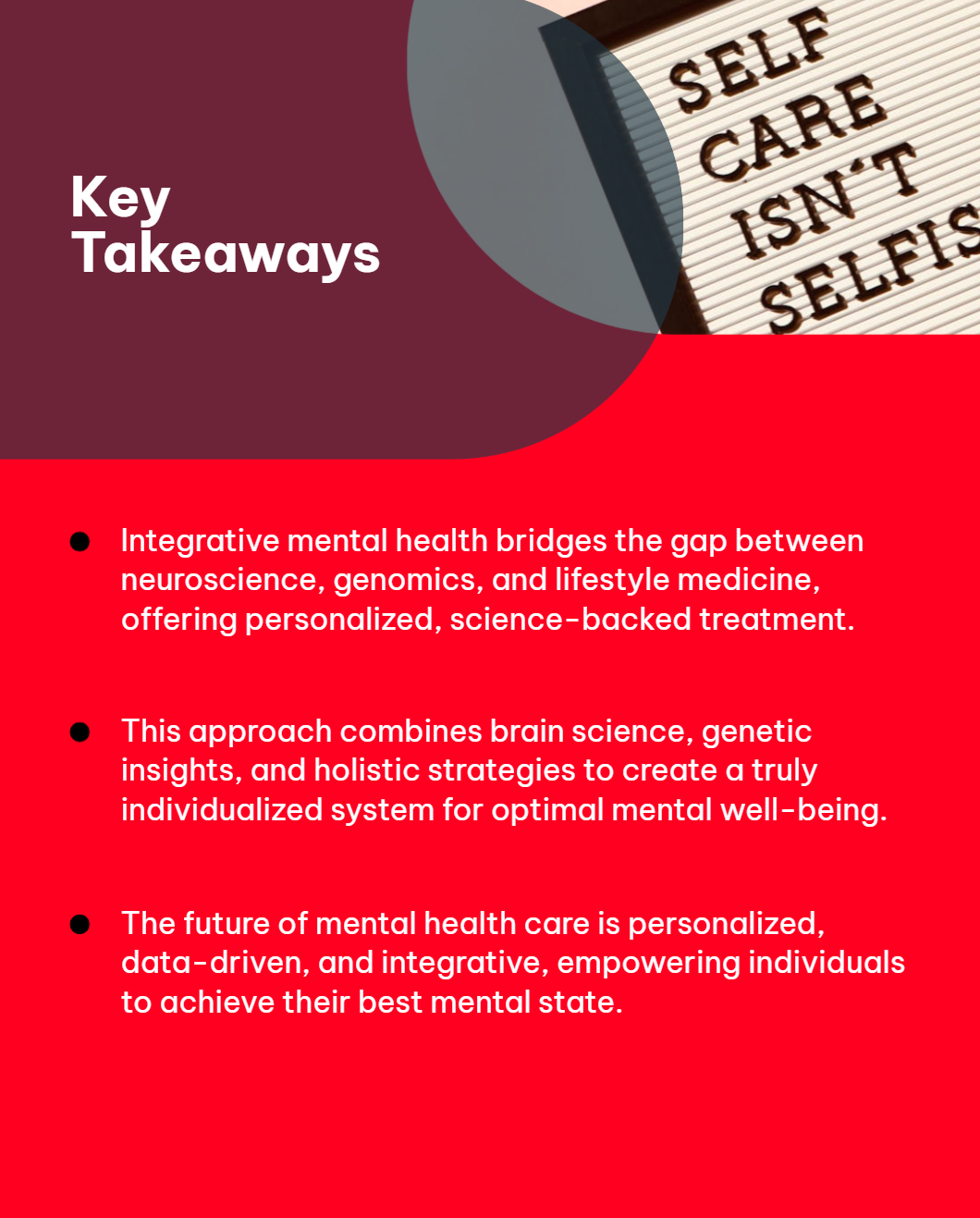IMAGE
Mental health care is evolving beyond traditional psychiatry and psychotherapy. Integrative mental health represents a revolutionary approach that merges neuroscience, genomics, and lifestyle interventions to provide more personalized and effective treatment strategies. By understanding brain function at a deeper level, leveraging genetic insights, and incorporating holistic lifestyle changes, we can redefine mental health treatment for the future.

Understanding Brain Function and Mental Disorders
Neuroscience has significantly advanced our understanding of how mental disorders arise. Conditions like depression, anxiety, bipolar disorder, and schizophrenia are linked to neurobiological mechanisms involving neurotransmitters, brain circuits, and inflammation.
Key neurological factors affecting mental health:
Brain Imaging and Biomarkers
Advancements in neuroimaging (fMRI, PET scans) and biomarker research allow clinicians to assess mental disorders at a biological level. For example:
These insights help in developing targeted interventions tailored to the individual's neurobiology.

How Genetics Influences Mental Disorders
Genetic research has revealed that mental illnesses have strong hereditary components. Twin studies indicate that:
Genetic Testing for Mental Health
Modern genetic testing (such as polygenic risk scores) helps identify predispositions to mental disorders. These tests provide:
This precision medicine approach allows for customized treatment rather than a one-size-fits-all model.

Diet and Nutrition for Brain Health
Emerging research shows that gut health and nutrition play a crucial role in mental well-being. The gut-brain axis highlights the connection between microbiota and neurotransmitter production.
Key dietary interventions:
Exercise and Brain Chemistry
Physical activity significantly affects mental health by:
Regular exercise, even 30 minutes of moderate activity per day, can have antidepressant-like effects.
Mindfulness, Meditation, and Stress Reduction
Mindfulness practices rewire the brain by increasing prefrontal cortex activity (responsible for emotional regulation) and reducing amygdala activation (linked to fear and stress).
Proven benefits:
Combining Neuroscience, Genomics, and Lifestyle Changes
The future of mental health integrates neuroscience, genomics, and lifestyle interventions into a single framework. This approach ensures holistic treatment, addressing both biological and behavioral aspects.
This multidisciplinary strategy can optimize mental health care, leading to better treatment outcomes and reduced reliance on pharmaceuticals.
Who Can Benefit from Integrative Mental Health?
Advancements on the Horizon
As research continues, we can expect:
Challenges and Ethical Considerations
While integrative mental health offers exciting possibilities, challenges include:

Integrative mental health is the future of psychiatric care, bridging the gap between neuroscience, genomics, and lifestyle medicine. By leveraging cutting-edge brain science, genetic insights, and holistic wellness strategies, we can develop highly personalized, effective mental health solutions.
A multi-dimensional, science-backed approach can revolutionize mental health care, moving beyond a one-size-fits-all model to a truly individualized system.
The next era of mental health will be personalized, data-driven, and integrative, empowering individuals to achieve optimal mental well-being.
Neuroscience provides insights into brain function, neurotransmitter imbalances, and neural circuitry. It helps develop more targeted treatments, from medications to brain stimulation therapies.
Genetic testing can identify predispositions to certain mental disorders, but it does not guarantee a diagnosis. However, it helps tailor medications and lifestyle interventions for better outcomes.
A healthy diet supports brain function by reducing inflammation, optimizing neurotransmitter production, and improving gut health. Key nutrients like omega-3s, probiotics, and magnesium play essential roles.
Exercise increases serotonin and dopamine, reduces stress hormones, and improves neuroplasticity. It acts as a natural antidepressant, promoting mental resilience.
Coverage varies by country and provider. While traditional mental health services are covered, genetic testing and holistic treatments may require out-of-pocket expenses.
 06.03.2025
06.03.2025